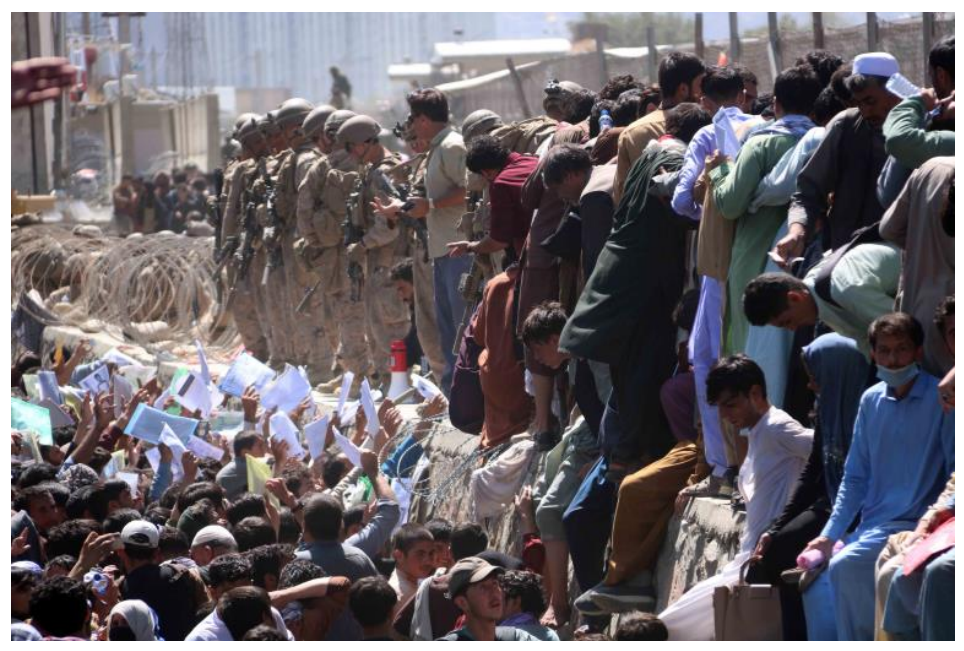Posted on: 15 December 2022
Since November 2021, CNWL has delivered a proactive outreach response to support Afghan evacuees who arrived at hotels in north west London. Fleeing the fall of Kabul in summer 2021, many evacuees had witnessed distressing events or been separated from family members.
Here, two members of the CAST outreach screening team – Vittoria De Meo and Seema Assadullah – describe the experience of working on the response programme, in conversation with Ankita Guchait.
Supporting Afghan evacuees
Seema explained the process of carrying out screening: “We spoke to Afghan families at the hotels, collected demographic information, and started with a basic questionnaire [covering general health and their mental health]. We asked them about possible trauma, starting from when they boarded the flight from Kabul.
“We listened to the evacuees and how they had been impacted, and that seemed to help. It also seemed to make a difference when we asked them about family members left behind and helped collect the names.”
Image source: Akhtar Gulfam/EPA-EFE, Al Jazeera, 27 Aug 2021
Understanding people’s needs
Vittoria described the underlying aim as trying to “understand the needs of a person”, with a focus on mental health and wellbeing but also paying attention to their physical health and any other needs. Vittoria said, “I have been supporting refugees and asylum seekers since 2010 and have been a refugee myself. I feel compassionate, and when you are compassionate your aim is to guide people and recognise their life experience.”
Compassion, empathy, and helping to build trust were vitally important for this work. Vittoria explained, “When you are empathetic and compassionate, a person is really able to feel that.” Seema reflected that, “The moments where they shared their stories made me feel like I had made a significant contribution by helping build that trust.”
Working as a team
“One of the unique things about this project”, according to Vittoria, “was that the team was made up of multidisciplinary staff, and that everyone was given an opportunity to be a leader without really having a hierarchy among the staff.” This was possible because of a shared sense of purpose, as “everyone in the team had a common goal”.
Seema explained, “I learned about working in different roles, for example sometimes I was a screener, and at times I was interpreting in Afghan language, or playing both roles of an interpreter and a screener.”
“In terms of support for us”, said Seema, “the project lead Jai [Adhyaru] was amazing and very caring when it came to staff wellbeing. The supervision we received also helped a lot, especially when other team members shared their experiences.”
Striving to be more culturally competent
 Vittoria emphasised that, “Working on the Afghan response project really confirmed to me the importance of cultural competency.
Vittoria emphasised that, “Working on the Afghan response project really confirmed to me the importance of cultural competency.
“In this kind of work”, she explained, “we have to take into account other cultures. We cannot act or respond in just one way. This is actually what the mental health world is trying to understand: how to change the approach so that everything is person-centred. We have to be so sensitive, empathic, and compassionate, we have to be aware and adapt to them and to working with them.”
Seema reflected on the experience of having to tailor support in this way: “One thing that felt unique about this project was working very specifically to the needs of Afghan evacuees, whereas other services usually focus on the general refugee population.”
Learning from the experience
“It was a very good learning experience”, said Seema, “which I am able to apply to my current job [working for the Op Courage Warm Welcome service], especially because it helped me to build confidence when working with refugees.”
Vittoria said, “I felt very honored when I was asked to join. If I hadn’t had the opportunity to be involved with the Afghan response project, and learned more about adapting to different cultures, I probably would not have been able to set up the Harbouring Women service for Ukrainian women, which again has to take a different approach to meet the needs of a different people and culture.”
For further information contact cast.cnwl@nhs.net or visit castcentre.org
